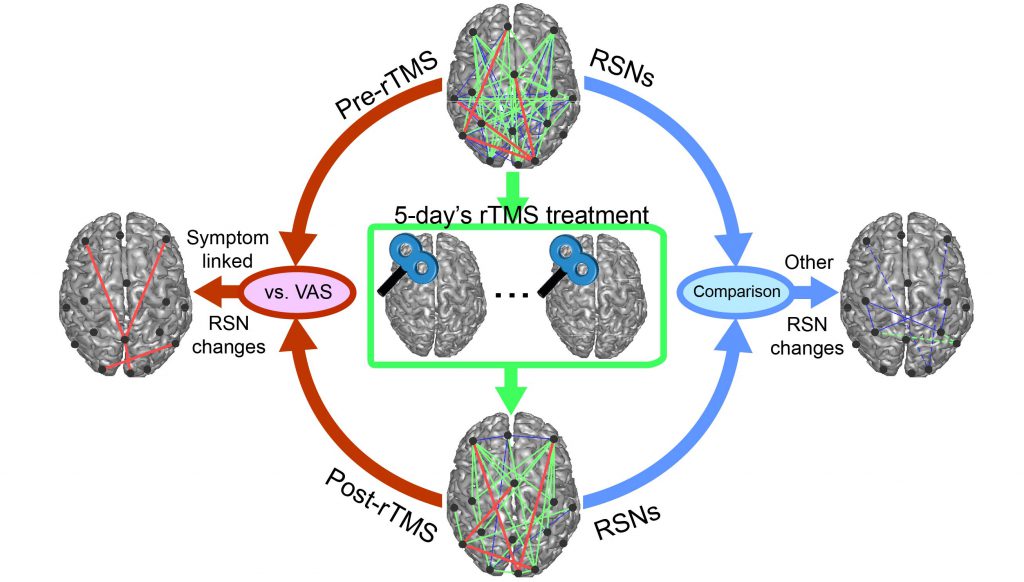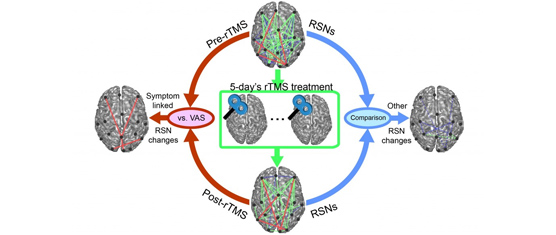Lei Ding, Guofa Shou, Han Yuan, Diamond Urbano, and Yoon-Hee Cha, University of Oklahoma, Laureate Institute of Brain Research, Volume 61, Issue 7, Page: 2070-2080

Repetitive transcranial magnetic stimulation (rTMS), have been largely studied to probe its clinical therapeutic efficacy in various neurological and psychiatric disorders, by perturbing or tuning electric oscillatory activities over specific brain regions via electromagnetic induction. To better address the direct neural responses induced by rTMS, in this work, we proposed a novel independent component analysis (ICA) based analysis framework in reconstructing neural oscillatory activities and resting-state networks (RSNs) from high-density resting-state electroencephalography (rsEEG) signals. Specifically, oscillatory powers and connectivity were examined in component signals that were calculated from a group-wise ICA procedure and linked to distinct neural substrates. We further demonstrated the performance of this analysis framework in rsEEG signals acquired in a cohort of patients with mal de debarquement syndrome (MdDS), which is a chronic disorder of imbalance. The rsEEG signals before and after five consecutive days’ rTMS stimulation over bilateral dorsolateral prefrontal cortex (DLPFC) were analyzed and compared with subjects’ reported symptom changes using visual analogue scale. The proposed method revealed significant long-lasting changes in resting-state oscillatory powers in theta, low alpha and high alpha bands, and RSNs in theta, low alpha, high alpha and beta bands, over broad cortical areas. Furthermore, it was revealed that oscillatory powers and RSNs changes in alpha band over parietal and occipital areas were significantly correlated to symptom changes. Given the impaired capability of spatial motion processing in MdDS patients, these findings were supported by other neuroimaging and neurophysiological evidence and suggested the efficacy of the present rTMS protocol for treating MdDS. Therefore, the proposed ICA based analysis framework is a promising technique to probe rTMS induced neural responses.
Keywords: Connectivity, independent component analysis, mal de debarquement syndrome, repetitive transcranial magnetic stimulation, resting-state EEG
Research website: http://www.ou.edu/ouneuro

